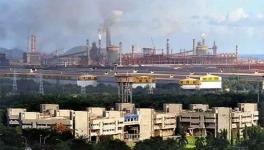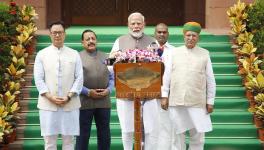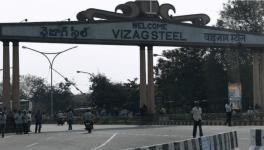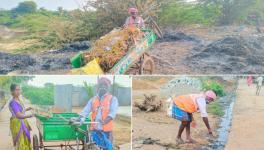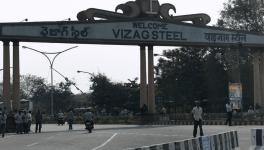Polavaram Dam-affected Tribes Ignored by Both Central and State Governments
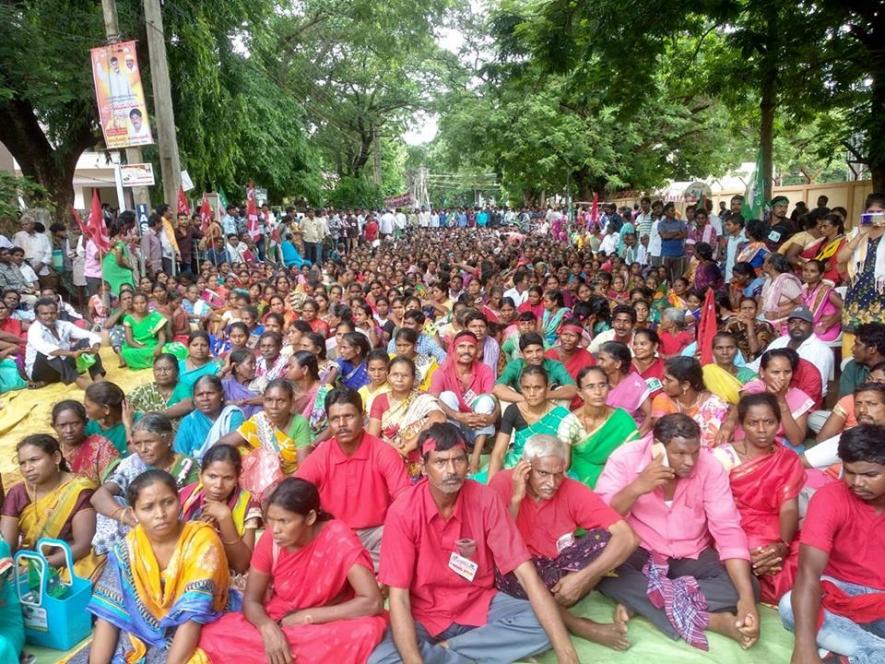
Between July 10 and 16, hundreds of tribals marched across villages being submerged in West Godavari district due to Polavaram Project (dam), asking the government to provide forest “pattas” (rights) for their “podu” lands, and proper resettlement and rehabilitation under the Right to Fair Compensation and Transparency in Land Acquisition, Rehabilitation and Resettlement (LARR) Act, 2013. The ‘Agency Poru Yatra’ – Tribals’ march was followed by a massive protest on July 16, in front of the district collectorate in Eluru, under the banner of Andhra Pradesh Girijana Sangham, a CPI(M)-affiliated tribals’ body.
The affected families of the Polavaram dam, national project, have led massive protests in the last four years, claiming that their rights are being undermined and compromised by the government while the construction work of the dam has been intensified. The Polavaram project, being constructed on Godavari river, is meant to provide irrigation to 2.91 lakh hectares of land, and drinking water to 540 villages. It will also displace about 3 lakh people – including 1,50,000 tribals and 50,000 Dalits, submerging more than 300 villages including tribal hamlets. Ten thousand acres of forest land and 1,21,975 acres of non-forest land was acquired for this project.
The TDP-led Andhra Pradesh government, in 2014, had taken over the construction responsibility of the project, in spite of Polavaram being a national project. Recently, it pegged the revised estimated project cost at Rs 57,940 crore (at 2013-14 price level), whereas the earlier estimation was just Rs 16,010.45 crore (at 2010-11 price level).
Perhaps, as TDP came out of the BJP-led NDA alliance, which is in power at the Centre, Union Minister for Water Resources Nitin Gadkari had reportedly asked the state government explanation for the steep rise in the project cost. So far, the central government has sanctioned Rs 8,662 crore through the Polavaram Project Authority (PPA) for the project, while the state claims that the expenditure incurred till May 2018 was Rs 13,798. 54 crore.
Rights activists are arguing that both the BJP and TDP are aiming to get political mileage in the state with the construction of the dam, but both the parties are completely ignoring the rights of affected families, especially of the tribals. Babji Juvvula, state secretary of Andhra Pradesh Vyavasaya Vruttridarula Union (APVVU), who was part of a fact-finding committee that recently visited the Polavaram project-affected villages, observed that the ruling party TDP leaders, along with local politicians, representing various parties and middlemen are indulging in corrupt practices by interfering in the implementation of resettlement and rehabilitation. “For the last three years, I have been filed numerous RTIs asking for missing records, which the government withheld in regard to this project, but couldn’t get any reply. As numerous corruption practices are being alleged and unearthed, APVVU is also fighting a legal battle with the state government in this regard,” Juvvula said.
Environmental activist Prafulla Samantara of National Alliance of People’s Movement (NAPM), who was also part of the fact-finding committee, raised similar concerns over the trends of corruption in Polavaram project. Samantara stated, “The project has unfortunately helped corruption to make inroads into the region. When we visited the villages, people complained to us about large chunks of their compensation money being 'transferred' to the accounts of local politically influential persons and their associates.”
On July 3, National Commission for Scheduled Tribes (NCST) directed the Andhra Pradesh government to improve resettlement and rehabilitation of 55,000 tribal families – by providing cultivable fertile land, means of livelihood, enhanced compensation package and proper housing. The direction comes after NCST conducted field visits to the affected villages from March 26 to 28.
Get the latest reports & analysis with people's perspective on Protests, movements & deep analytical videos, discussions of the current affairs in your Telegram app. Subscribe to NewsClick's Telegram channel & get Real-Time updates on stories, as they get published on our website.










